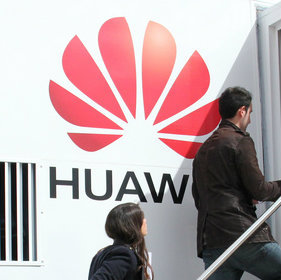Huawei Sets Up New Cloud & AI Unit
The Chinese equipment giant has set up a new business unit that it says marks a big shift in its ICT strategy.

Huawei is leaning further into the cloud, establishing a new cloud and AI unit as its fourth business group.
The new division will sit alongside existing operator, enterprise and consumer business units, a spokesperson said, confirming domestic media reports.
No further details are available at this stage. Huawei execs have described the move as a major shift in its ICT strategy, although "the direction and details" are still being discussed, news site sina.com reported.
It seems the new unit will be primarily a product and technology division, developing the underlying public and private cloud platforms, big data, smart computing and other solutions for the customer-facing units.
The focus on these key emerging technologies of cloud and AI is another sign of Huawei diversifying away from its core telecom equipment business. Last year the handset business eclipsed the carrier business to become the biggest source of revenue.
But an analysis on website CCTime notes that the focus of Huawei's cloud business has veered wildly over the past four years -- from virtualization and international public cloud to proprietary public cloud and private cloud.
In the last two years the company has progressively gathered its cloud, AI, big data, computing, storage and IoT capabilities into a single team inside the enterprise division. The elevation to a business unit reporting to the CEO is a further step in that strategy.
Co-chairman Guo Ping acknowledged in last year's annual report that the cloud business needed to "hone its competitive edge" in enterprise services and develop its AI capabilities.
Want to know more about 5G? Check out our dedicated 5G content channel here on
Light Reading.
That is because Huawei's cloud business is still quite small, even in China, which is just 8% of the size of the US cloud market.
Ali Cloud has around 43% of China's cloud services market, followed by Tencent, AWS and Baidu, according to a Canalysys report from the second quarter of 2019. Huawei is well back in the pack, grouped among "others."
On the AI side, Huawei's business is quite diverse, stretching from underlying chip technology and architectures to network automation, autonomous driving and a range of internal projects, not to mention its controversial surveillance tech. (See Huawei Positions Itself for Age of Big Computing.)
Eric Xu, one of the company's three chairmen, estimates the company is investing around $1.5 billion annually in AI R&D. That includes $200 million a year for internal AI projects to improve efficiency and gain insights into the technology.
He said five months ago Huawei had no intention of becoming an AI company and was aiming to develop AI capabilities to support its core infrastructure and device business. (See Huawei Spending $1.5B Annually on AI Development.)
— Robert Clark, contributing editor, special to Light Reading
Read more about:
AsiaAbout the Author(s)
You May Also Like




_International_Software_Products.jpeg?width=300&auto=webp&quality=80&disable=upscale)







